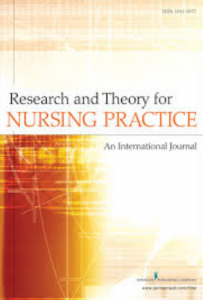The Oncofertility Consortium is pleased to welcome Dr. Jennifer Hirshfeld-Cytron as a guest blogger today.
 This is a blog post based on the article, Toward theoretical understanding of the fertility preservation decision-making process: examining information processing among young women with cancer by authors P.E. Hershberger, L. Finnegan, S. Altfeld, S. Lake, and J. Hirshfeld-Cytron, in Research and Theory for Nursing Practice.
This is a blog post based on the article, Toward theoretical understanding of the fertility preservation decision-making process: examining information processing among young women with cancer by authors P.E. Hershberger, L. Finnegan, S. Altfeld, S. Lake, and J. Hirshfeld-Cytron, in Research and Theory for Nursing Practice.
By: Jennifer Hirshfeld-Cytron, MD/MSCI
Despite a clear desire among cancer patients to receive oncofertility counseling, studies have shown about a third of patients do not follow up with care following the consultation. Increased attention is being drawn to the process of decision making and the best ways to deliver information. In addition, what is the process of which information can be successfully processed and a decision made during such a stressful time?
As health care providers, we constantly strive to make sure we are accurately discussing medical data with our patients. Furthermore, our goal is to help patients come to a decision that they are comfortable with based on sound scientific evidence and their unique perspectives. This process is even more important when approaching a subject such as oncofertility which is elective and involves planning for the cancer remission phase, newly after an initial cancer diagnosis is made.
Using a qualitative approach and decision theory we conducted in depth interviews of 27 women with a recent cancer diagnosis that were eligible for fertility preservation. We discovered that 85% reported receiving counseling, but a majority reported that they felt it was inadequate. Woman often go to the internet for supplemental material; in particular they are interested in learning other woman’s experiences. Health care providers could provide accurate websites such as myoncofertility.org to assure patients are receiving medically sound information. This site also provides patient’s stories. Our analysis further suggests using broad probing questions during the consultation should be used judiciously as women are often unsure of what questions to ask clinicians regarding how their particular needs impact their fertility preservation options. Having an organized informational approach and a collaborative and cohesive medical team were all essential strategies that can facilitate decision making. In particular, navigating the medical system can be overwhelming and informing patients about how to navigate the system and using patient navigators can enhance the patient experience.
A true collaborative team across specialties and between MDs, nurses, social workers, and other clinicians such as patient navigators is also essential; particularly as members of the support team engage in what are research identified as “decisional debriefing sessions.” These debriefing sessions are focused aspects of counseling sessions where active information processing takes place. Assuring that women receive an oncofertility consultation is only the beginning, in this next phase of fertility preservation we need to assure patients are undergoing productive consultations in the context of a larger collaborative medical team.


 By: Brigid Martz Smith -
By: Brigid Martz Smith -